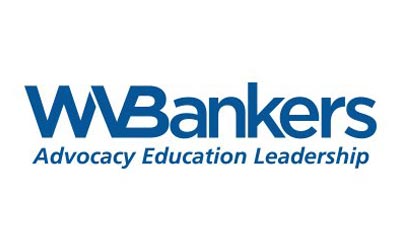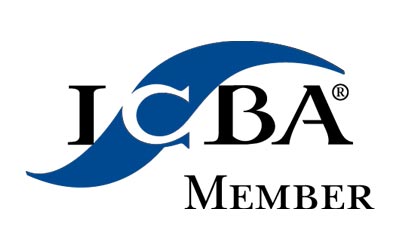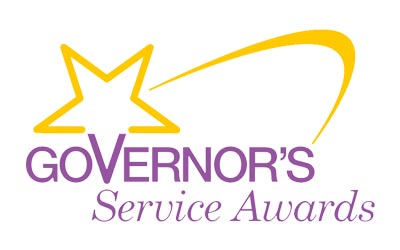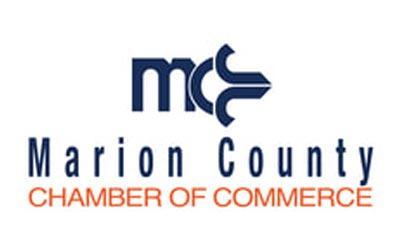For many students, their first experience with debt is through student loans. By the time they leave college, they’ll probably open a credit card as well, if they don’t already have one. Credit cards can be a good way for college students to start building credit when used responsibly.
There are several student financial aid options in West Virginia, and each school has its own financial aid office, including popular schools such as West Virginia University and Marshall University. If you’re looking for student loan assistance in West Virginia, all of these are good places to start.
If you already have student loans and/or a credit card, you’re already on your way to establishing credit. Let’s consider how credit scores work, how to establish credit, and how to put yourself on the path to financial success.
What’s a Credit Score?
A credit score is a number that the nation’s three credit rating agencies use to determine what kind of financial risk you are, and the higher your score, the better. Your credit rating can impact your ability to obtain a loan and the interest rate you’ll be charged. It can also affect your career, as many employers will check your credit as part of a background check.
You might not have a credit score yet, but it’s important to check yours to see where you stand. You can get a free credit report from AnnualCreditReport.com. These reports used to be available once a year, but you can now check them once per week.
Take a close look at these reports and see if there are any loans or credit cards that you don’t recognize, as that could be a sign of fraud or identity theft. If you do find something inaccurate, contact the credit reporting bureau that contains the information. You can reach them online: Equifax, Experian, and TransUnion.
What Determines My Credit Score?
The two biggest factors in your credit rating are your payment history and your credit utilization ratio, which is how much credit you have, compared to your debts. You can build and maintain a good credit score by paying your bills on time and not carrying a balance on your credit cards. Any late payments or uncollected debts will stay on your credit report for seven years, so just one missed or delayed payment could impact your credit for a long time.
How Can a Student Start Building Credit?
When considering how to build credit as a college student, keep in mind that establishing good financial habits today can reap substantial rewards for the rest of your life. Any student who doesn’t start college with a credit card will probably have one by the time they leave. They can be a great way to build credit if they’re used responsibly.
Unfortunately, many people use them to fund their lifestyle and live beyond their means. This creates a financial trap that can be hard to get out of. Living within your means as much as possible, and not carrying a credit card balance, can help you avoid interest charges and improve your financial situation for years to come.
Credit Building Tips for Students
A recent study by West Virginia University revealed that credit limits increase rapidly early in life, rising by about 400% between the ages of 20 and 30. Credit limits continue to rise after age 30, although not as fast. The study also revealed that people’s credit card usage is established early in life and can be broken down into two categories.
About half of those with credit cards use them to make regular purchases and pay them off in full each month. The other half uses their cards to finance their purchases and can carry a balance for years, which results in high-interest costs.
The study also revealed that these habits remain for each group even as their available credit and incomes rise. For “revolvers,” who always carry a balance on their cards, this consumes a significant share of their income and limits their investment opportunities, such as buying a home.
The Best Credit Cards for Students (and How to Use Them)
For many students, their first credit card belongs to one of their parents. Many parents add a child to their credit card account as an “authorized user” and may give them a card of their own as a convenience and in case of emergencies. This can be a good way to establish credit, and parents can teach them about the importance of fiscal responsibility, such as paying the balance off every month. Many colleges and universities also offer student credit cards.
For most college students, the first credit card that’s in their name will have a low balance limit, as they haven’t yet demonstrated that they can handle debt. Using your credit card responsibly and paying off the balance each month is a great way to build credit. Try to avoid hitting your balance limit every month, because this can negatively impact your credit.
With many credit cards, you can ask for a limit increase on your available credit every six months. This will reduce your credit score a bit, but the impact will be temporary if you use your card responsibly. The more credit you have, and the less you use it, the better your credit score will be.
What’s a Secured Credit Card?
If you are unable to obtain a credit card, a prepaid card can be a way to establish credit. It’s like a prepaid phone plan. You add money to your card from a checking account, savings account, or cash, and then use it like a debit or credit card. These cards are relatively easy to obtain, and they can help you establish credit if you don’t spend beyond your limit.
Hold on to Your Cards
It may be tempting to cancel any credit cards you don’t use very much, but holding onto them can help your credit score because it maintains your total available credit. Just make sure you use that old card every couple of months (and pay off the balance) or your provider might cancel it for lack of use.
Pay Your Bills on Time
Things you regularly spend money on, such as a cell phone plan or utility bills, won’t necessarily help your credit score, but they can certainly damage your credit if you fail to pay them on time. You could use them to build credit by paying them with a credit card.
See if your cell phone or Internet provider will give you a discount by setting up automatic payments with a card, because your credit card payments are reported to the credit bureaus. Just make sure you don’t exceed your card’s limits and can pay the balance off each month.
Pay Down Your Student Loans
In West Virginia, the average unpaid student loan debt is $32,358. This is lower than the national average of nearly $36,000 according to EducationData.org. It reports that 47.5% of these borrowers are less than 35 years old.
For qualified student loans, you can deduct up to $2,500 of qualified student loan interest payments from your income tax returns every year. You could claim this deduction if you paid interest on your loan during the tax year and your Monthly Adjusted Gross Income (MAGI) doesn’t exceed a specific limit that changes every year.
Because of this income tax deduction, and the relatively low interest that student loans offer, many people might be tempted to pay as little as possible so they can spend their income on other things. It’s important to make regular student loan payments, as it is with all your bills and debts, because paying off your debts as fast as possible is important for building a good credit rating.
Income-Based Student Loan Repayment Plans
You might see if you’re eligible for a federal income-driven repayment plan, which is based on a percentage of your discretionary income. If eligible, you’ll have to recertify every year by updating your income and family size. After 20 years of making payments, any remaining balance on your student loans could be forgiven.
Limit Your Loan and Credit Card Applications
Whenever you apply for a loan or credit card, there will be a “hard pull” check on your credit. This will remain on your credit history for two years and can temporarily reduce your credit score by a small amount, although your credit score should quickly recover as long as you make your payments on time.
Applying for multiple loans or credit cards can harm your credit score for some time, although there is an exception to this. If you’re comparing options for the same type of loan (student loan, auto loan, mortgage, etc.), the rating bureaus will treat these applications as one credit inquiry if they happen within the same timeframe, which could be from 14-30 days.
Checking your credit, a pre-employment background check, buying insurance, and loan pre-qualifications are what’s known as “soft pull” inquiries and won’t negatively affect your credit score.
We Can Help You Build Credit!
If you have any questions about building wealth and credit, please contact us or visit one of our seven locations in White Hall, Mannington, Fairmont, Fairview, Hundred, Suncrest-Morgantown, and Pierpont Landing- Morgantown. You can also check out our blog for more ideas about financial planning and credit.









